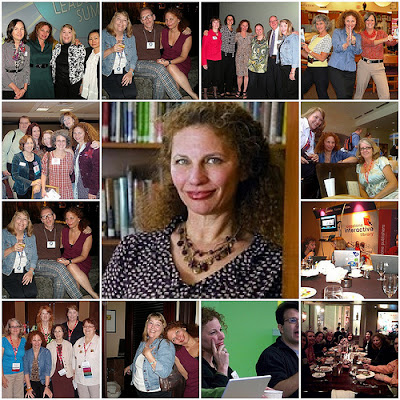Since 2008, Valenza has used the metaphor that a library should be "more kitchen than grocery store". She has said:
Our libraries should transition to places to do stuff, not simply places to get stuff. The library will become a laboratory in which community members tinker, build, learn, and communicate. We need to stop being the grocery store or candy store and become the kitchen. We should emphasize hospitality, comfort, convenience and create work environments that invite exploration and creativity both virtually and physically. We want our users (members, students, teachers) to trust us enough to allow us to participate. (From: The NeverEndingSearch).
This clearly resprents a constructivist way of thinking about libraries. Guided Inquiry is also based in constructivist thought. A constructivist approach to learning "builds knowledge by engaging students in stimulating encounters with information and ideas" much like the tools, equipment, and ingredients that we gather up in a kitchen to build a cake.
A non-constructivist, or transmission approach, to learning "emphasizes finding the right answer, memorizing facts, repackaging information" - much like running into a grocery store to merely pick up a cake that is already baked.
A non-constructivist, or transmission approach, to learning "emphasizes finding the right answer, memorizing facts, repackaging information" - much like running into a grocery store to merely pick up a cake that is already baked.
So, it is clear that Valenza espouses a constructivist framework as a teacher-librarian. But does she specifically embrace Guided Inquiry as an approach to learning in the 21st century school library?
The Springfield Township High School Library Mission Statement
This mission statement, written by Valenza, reads, in part, that "instruction, formal and informal, provides students with a process transferable across subject areas and from academic to real life. The bulk of the learning is "laboratory style" with students involved in guided, inquiry-driven research using resources in all formats: traditional, new, emerging. (Emphasis added).
Implications of Valenza's Work with regard to Guided Inquiry
Valenza's body of work has many implications with regard to Guided Inquiry. Her research interest in education technology tools is definitely significant in this regard. Since she is an expert in the evaluation of such tools, she can suggest ways in which they can be used effectivel as part of instruction or as an intervention.




